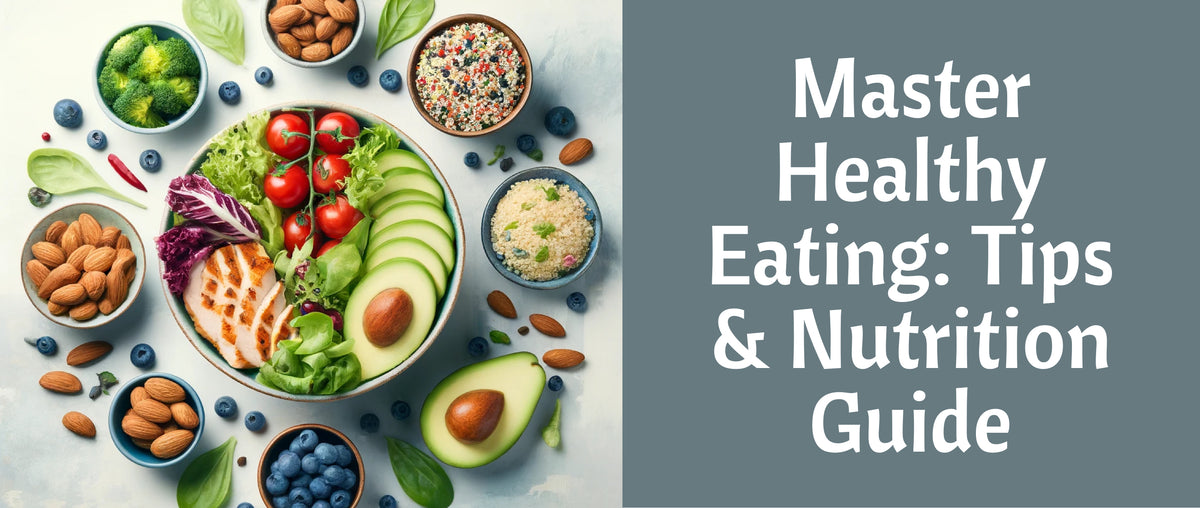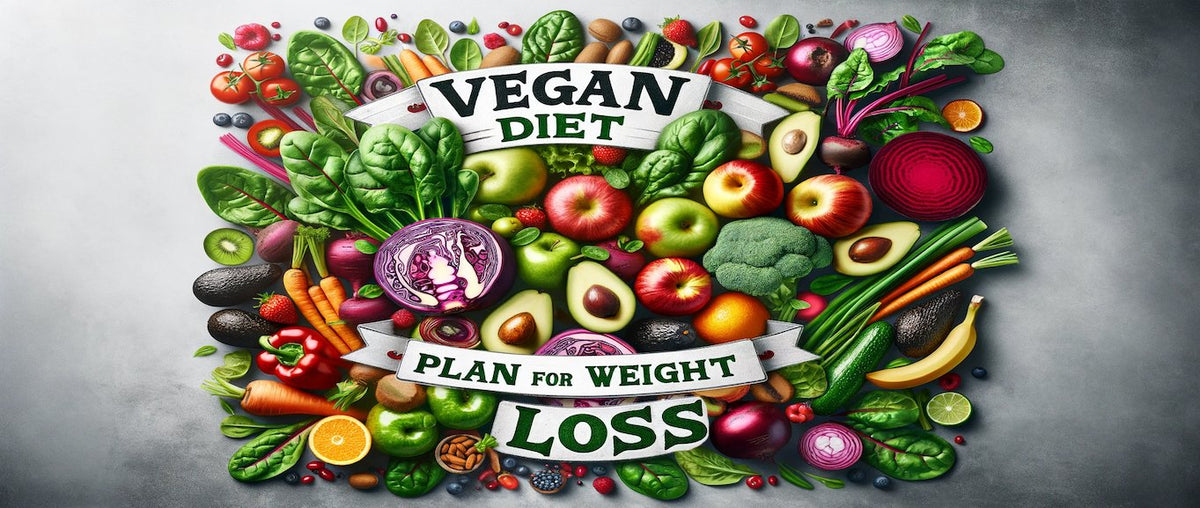Healthy Eating
A healthy diet is a variety of foods from all food groups, with an emphasis on fruits, vegetables, and whole grains. It limits unhealthy fats, sugars, and salt while including enough protein and fiber. This way of eating supports your physical and mental health throughout all stages of life.
Eating a healthy diet is more than just a lifestyle choice—it's a fundamental component of maintaining optimal health and well-being. Whether you're looking to enhance your energy levels, improve your mood, or reduce the risk of chronic diseases, understanding and implementing healthy eating principles is essential. This guide explores everything from plant-based foods to healthy drinks like kombucha, providing you with the knowledge needed to build a balanced diet.
Key Takeaways
- Understand the basics of a balanced diet and why it’s crucial for your health.
- Learn practical tips for incorporating a variety of plant-based foods and vegan products into your daily meals.
- Discover how to make informed choices about fats and sugars, emphasizing products like unsalted butter and cashew butter.
- Explore the health benefits of healthy drinks, including options like kombucha and how they fit into a nutritious diet.
Building a Healthy and Balanced Diet
What is a Healthy Diet?
A healthy diet supports your body in every stage of life. It is not restrictive but should include a variety of foods from all the major food groups. For those exploring Vegan Shop options, Vegan products provide ample opportunities to maintain such a diet without sacrificing taste or nutrition.
Eat Lots of Fruit and Veg
Fruits and vegetables are the cornerstone of any healthy diet, offering a rich source of vitamins, minerals, fiber, and antioxidants. Whether you are juicing them, blending them into smoothies, or eating them whole, fruits and vegetables can significantly impact your health. Introducing kombucha India into your diet as a fermented, flavorful option can also contribute to digestive health.
Cut Down on Saturated Fat and Sugar
Reducing your intake of saturated fats by opting for vegan butter or Cashew Butter instead of traditional dairy products can help manage weight and reduce heart disease risk. Similarly, cutting down on added sugars, often found in overly processed foods, is crucial for overall health.
Eat Less Salt: No More than 6g a Day for Adults
High salt intake can lead to high blood pressure and increase the risk of heart disease. Choosing unsalted butter and garlic butter without added salts can flavor your food without the extra sodium, making significant strides toward a heart-healthy diet.
The Benefits of Healthy Eating
Adopting a diet rich in plant-based foods and Healthy Drinks can have profound effects on your physical and psychological health. Here are some of the key benefits:
- Improved Physical Health: A diet balanced with fruits, vegetables, lean proteins, and whole grains, like those available from a vegan shop, helps maintain a healthy weight, reduce the risk of chronic diseases such as diabetes, heart disease, and cancer, and promotes overall vitality.
- Enhanced Mental Wellbeing: Nutritious foods boost mood and can reduce symptoms of depression and anxiety. Healthy drinks like kombucha, which is fermented and full of probiotics, may improve gut health, thereby enhancing your mood and cognitive functions.

Core Components of a Healthy Diet
A well-rounded diet involves a variety of food components, each providing unique nutrients that help the body function optimally. Here's what to include:
Macronutrients and Micronutrients
- Proteins: Essential for building and repairing tissues, and available in plant-based forms like vegan cheese and legumes.
- Carbohydrates: The body's main energy source, found abundantly in fruits, vegetables, and whole grains.
- Fats: Necessary for energy, cell function, and the absorption of certain vitamins. Options like vegan butter and cashew butter provide healthy fats without the downsides of animal-derived saturated fats.
Fiber
Fiber: Aids digestion and helps control blood sugar levels. Fruits, vegetables, whole grains, and legumes, key staples in plant-based foods, are excellent fiber sources.
Vitamins and Minerals
- Calcium, Vitamin D, Iron, and Zinc: Particularly important in vegan diets. Fortified foods and diverse food selections help cover these essential nutrients.
Practical Tips for Healthy Eating
Maintaining a healthy diet requires a bit of planning and smart choices, especially when shopping or dining out. Here are some practical tips to help you stay on track:
- Meal Planning: Plan your meals for the week ahead to avoid the temptation of unhealthy options. Use vegan shop websites to source ingredients like vegan cheese and vegan butter.
- Reading Food Labels: Learn to read nutrition labels to make better food choices, focusing on reducing sugar, salt, and unhealthy fats.
- Portion Control: Keep an eye on portion sizes to avoid overeating, even when consuming healthy foods.
Common Myths About Healthy Eating
- Myth: Vegan food isn't nutritious enough.
- Fact: Vegan diets, when planned well, can provide all necessary nutrients. Foods like vegan cheese, cashew butter, and other vegan products are fortified with essential vitamins and minerals.
- Myth: Healthy food is more expensive.
- Fact: With strategic shopping and meal planning, healthy eating can be quite affordable. Plant-based foods often cost less than their meat counterparts, especially when bought in bulk.
Also Read
Healthy Eating on a Budget
Eating healthily doesn't have to break the bank. Here are some tips for maintaining a nutritious diet while on a budget:
- Buy in Bulk: Purchase staples like grains and legumes in bulk. Items like cashew butter can also be found in larger quantities for less.
- Seasonal Shopping: Buy fruits and vegetables that are in season to get better prices and flavors. This also encourages a varied diet.
- Cook at Home: Prepare meals at home using healthy ingredients from vegan shops. Homemade Garlic Butter or vegan butter can be more cost-effective and healthier than store-bought versions.
Challenges to Healthy Eating
While the benefits of healthy eating are clear, several barriers can make it difficult to stick to a good diet:
- Time Constraints: Busy schedules can make it hard to prepare healthy meals. Prepping meals in advance during weekends can help alleviate this issue.
- Accessibility: Not everyone has easy access to fresh produce and healthy food stores. Exploring local markets or online vegan shops can provide more options.
- Dietary Restrictions: For those with allergies or specific dietary needs, finding suitable products can be challenging. Many vegan products are naturally free from common allergens like dairy and eggs.
Maintaining a Healthy Diet in Special Circumstances
Different life stages and conditions may require dietary adjustments:
- Children and Teenagers: Growing bodies need more nutrients. A diet rich in fruits, vegetables, and adequate proteins like vegan cheese can support healthy development.
- Elderly: Nutrient-dense foods that are easy to chew and digest, such as smoothies made with healthy drinks and soft plant-based foods, are ideal.
- Pregnancy: Ensuring a diet rich in iron, calcium, and folic acid is essential. Supplements and fortified vegan products can help meet these needs.
Conclusion
Healthy eating is about making informed food choices and enjoying a variety of foods in the right proportions. This guide has provided insights into building a balanced diet, understanding the importance of nutrients, and making smart food choices that fit your lifestyle and budget. By adopting the strategies discussed, you can enjoy the benefits of a nutritious diet and a healthier lifestyle.
Craving a delicious vegan meal? Look no further! We've got a guide to the best vegan restaurants in India, ready to help you discover amazing plant-based eats in your city.










